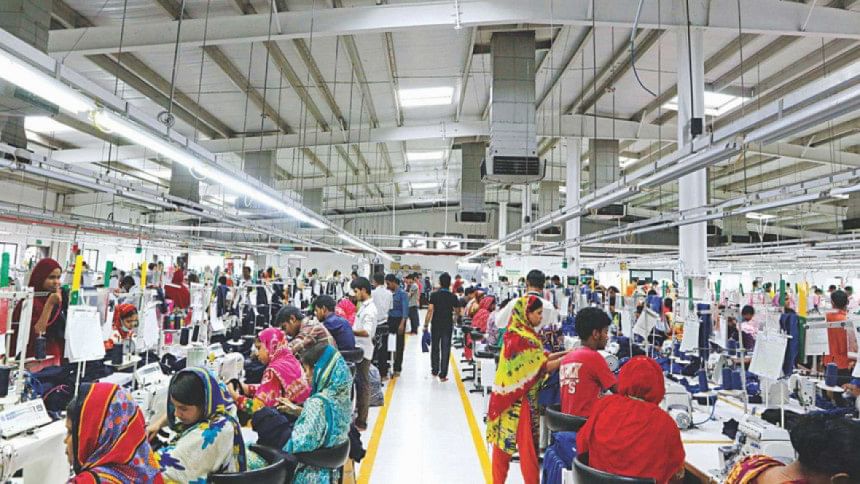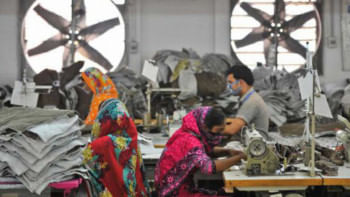How fashion is future-proofing by investing in technology

Are fashion brands becoming more than retailers of clothing? Many are focusing on technology. For instance, Shein has claimed it is not a fast fashion brand but a technology business.
I would however argue that Shein's core business remains fashion and clothing. Yet, there are also grounds for suggesting Shein is changing the way that clothing is accessed, by disrupting the rules of the game and other brands are having to respond accordingly.
Many brands in the fashion industry are moving beyond their core proposition and delving deep into their supply chains. In recent years, many brands invested in recycling technology companies, becoming shareholders in outfits such a Renewcell and Infinited Fibre Company.
H&M has recently gone one step further. H&M Group and Vargas Holding recently announced the launch of Syre. Backed by TPG Rise Climate, Syre aims to rapidly scale textile-to-textile recycling of polyester and "contribute to a more sustainable textile industry."
In many ways, this is H&M Group attempting to future-proof its operations. The company has secured an offtake agreement with Syre worth a total of US$600 million over seven years, covering a significant share of H&M Group's long-term need for recycled polyester, which is currently primarily sourced from rPET bottle-to-textile.
Through Syre, H&M Group said it wants to contribute to a meaningful shift in the industry by moving away from virgin polyester.
This is laudable. Another factor at play here is that H&M, like many other fashion brands, sees a potentially huge and lucrative market in textile recycling. Why depend on third parties for recycled materials when it can invest in them itself? This could be a massive growth industry over the next two decades. It also gives H&M a degree of vertical supply chain integration and places it in a powerful position. Could this one day see H&M supplying other brands with their recycled polyester needs? Don't bet against it.
US brand Lululemon has made similar moves in the past 12 months. The company partnered with Australian enviro-tech startup Samsara Eco on a multi-year collaboration to scale textile-to-textile recycling, and see Samsara Eco create the world's first infinitely recycled nylon 6,6 and polyester. The goal is to create new recycled nylon and polyester made from apparel waste.
Nylon and polyester make up roughly 60 percent of clothing produced today. Globally, around 87 percent of discarded textiles either end up in landfill, incinerated or leak into the environment. Until now, no business has managed to scale the recycling of polyester.
Samsara Eco's innovation could be viewed as an important milestone in tackling plastic pollution and carbon emissions caused by textiles. By investing in it, Lululemon takes leadership role in this area, by future-proofing the company and generating huge amounts of positive PR. It's an obvious win-win.
Likewise, Spanish fast fashion group Inditex this year launched a partnership with chemicals giant BASF to create a new nylon called "Loopamid", a polyamide 6 (PA6, also known as nylon 6). BASF and Inditex claim it is made from 100 percent waste nylon. Inditex brand Zara has produced a jacket made entirely from Loopamid and made it available globally.
BASF has said it plans to scale this technology and is considering building a PA6 recycling plant. Prior to this in 2022, Inditex had already signed a €100m deal with textile recycler Infinited Fiber Company committing to purchase 30 percent of Infinited Fiber's annual future production of Infinna, a fibre created from textile waste.
This suggests that like H&M, Inditex sees vertical integration and strategic collaborations with technology companies as the way forward.
It's not just in recycling where brands are investing in non-core areas. In 2022, H&M signed a multi-year carbon removal agreement with Climeworks, a carbon capture technology business, which covers the removal of 10,000 tonnes of CO2. Besides, enabling H&M Group to access capacity and establish long-term relations in the sector, the investment supported Climeworks' capacity scale-up. Investment in carbon removal will potentially help H&M to meet its carbon emission reduction targets.
Brands are also investing in renewable energy projects. In late 2023, BESTSELLER and H&M Group pledged to invest in the first utility-scale offshore wind project off the coast of Bangladesh. Copenhagen Infrastructure Partners (CIP) and local partner Summit Power are developing the project.
The 500 MW offshore wind project, which is in early-stage development, could significantly increase the availability of renewable energy in Bangladesh—one of the fashion industry's most important manufacturing countries.
Notably, only large multi-nationals are in a position to invest in this level of vertical integration and such moves are viewed by many as a way to future-proof enterprises, protecting issues such as supply chain volatility and impending climate targets (and associated regulatory scrutiny) further down the line.
Whether small and medium sized fashion brands could afford such investments is debatable. This potentially leaves them extremely vulnerable in a sector where size and scale are more important than ever.
Mostafiz Uddin is the managing director of Denim Expert Limited. He is also the founder and CEO of Bangladesh Denim Expo and Bangladesh Apparel Exchange (BAE).
Views expressed in this article are the author's own.
Follow The Daily Star Opinion on Facebook for the latest opinions, commentaries and analyses by experts and professionals. To contribute your article or letter to The Daily Star Opinion, see our guidelines for submission.

 For all latest news, follow The Daily Star's Google News channel.
For all latest news, follow The Daily Star's Google News channel. 









Comments